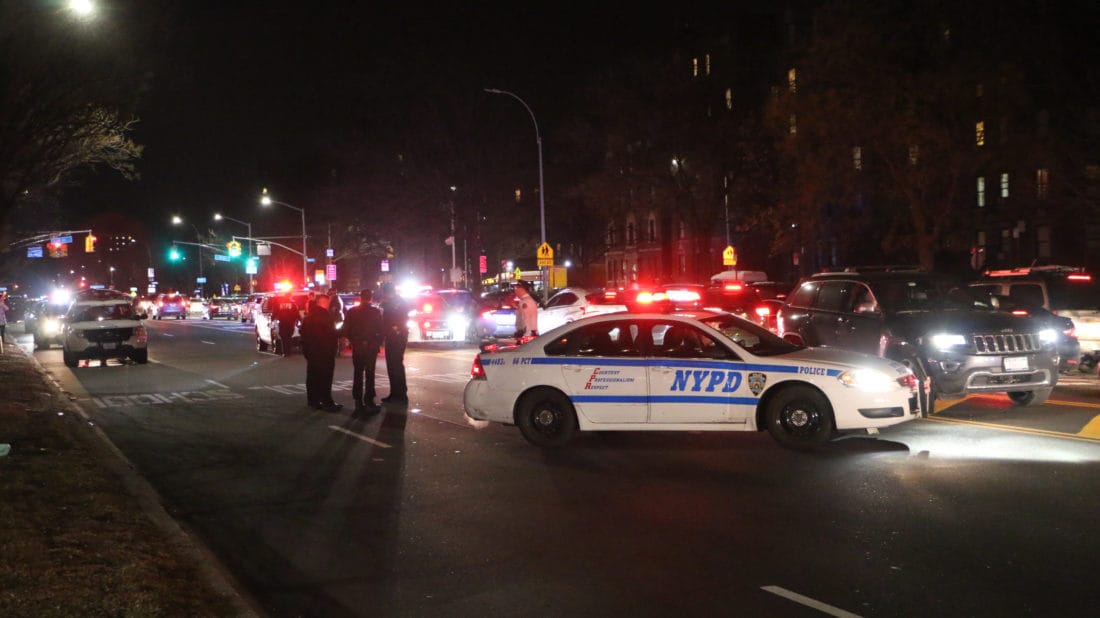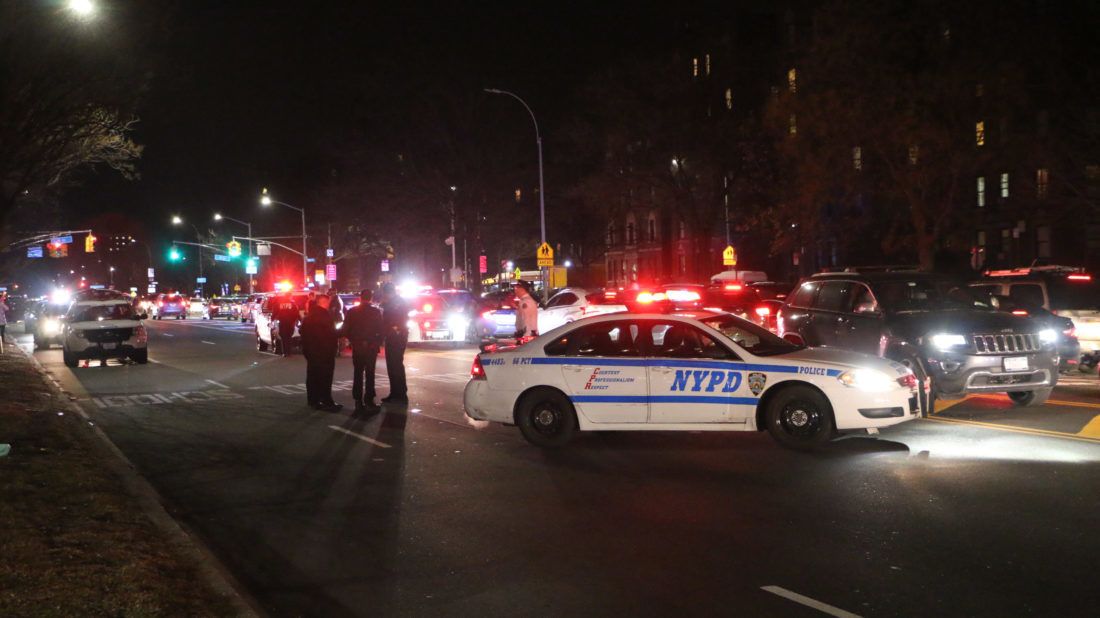Citywide Crackdown Targets Garbage Trucks For Inspection, Ticketing


Over the last year, traffic deaths and injuries caused by garbage trucks have dominated news cycles and community board meetings, with Brooklyn residents among those calling for stricter enforcement from the city on violations by private carting trucks.
The message finally got through, it seems, and the NYPD has started a campaign to crack down on garbage trucks citywide, spurred on by revelatory spot inspections held last month in the 62nd and 19th police precincts.
In Brooklyn, the 62nd Precinct covers Bensonhurst and Bath Beach, where the NYPD found multiple violations for every trash truck they stopped last month, including “faulty brakes, leaking fuel lines, or no lights,” according to the NYPD statement.
Officers also observed trucks running steady red lights and driving the wrong direction down one-way streets.
To many residents, these revelations are nothing new.
For the NYPD, they’ve apparently served as the catalyst for a citywide crackdown this week, which will involve a number of different measures, according to the department. At least one more vehicle will be deployed in each precinct and patrol officers have received “detailed internal guidance” about writing and issuing summonses for common trash truck violations.
Additionally, NYPD highway units, the Strategic Response Group, and the Motor Carrier Unit will be conduction inspections of sanitation trucks citywide during the crackdown week.
“In the middle of the night, trash trucks seemingly roll around with impunity. They often run red lights, cut off drivers, operate in bike lanes, and travel on the incorrect side of the road or go the wrong direction down one-way streets. When we do stop those trucks—they routinely have numerous equipment violations,” said Police Commissioner James P. O’Neill. “Drivers can now expect to see the NYPD out in full force, ensuring that these companies and their truck operators adhere to the letter of the law.”
While the NYPD’s announcement specifically cites private sanitation trucks as targets for inspections and citations, there’s no clear answer as to whether the patrols will be inspecting DSNY trucks belonging to the city, or if patrol officers were instructed to write summonses for those trucks as well. (Emails seeking clarification were unreturned as of publication.)
While private carting has borne the brunt of criticism, their drivers aren’t alone in causing problems. At the beginning of October, a pedestrian was struck and killed by a DSNY garbage truck in Crown Heights when the driver made a wrong-way turn up a one-way street.
And on August 1, two incidents occurred on the same day—one involving a private sanitation truck, the other a city garbage truck. In Bushwick, a biker was struck and critically injured on a narrow road by a DSNY truck. Possibly unaware of the accident, the driver continued on his way. Earlier that morning, a city worker was killed on the Gowanus Expressway, when a tire came loose from a private sanitation truck and struck the victim’s windshield, causing a fatal crash.
Those high-profile accidents came on the heels of reporting from ProPublica into the sometimes-deadly world of private carting, which refocused attention on local government to act in June.
The “Waste Equity” bill, Intro 157, which had failed the year before in a previous form, was passed by the City Council shortly thereafter. It was an attempt to deliver not only “environmental justice” to neighborhoods that handle most of the city’s trash (and suffer from the pollution that comes with it), but also to cut down on the dangerous truck traffic needed to move that trash.
Last year, the death of bicyclist Neftaly Ramirez in Greenpoint turned the community attention towards truck traffic in the North Brooklyn neighborhood, which has remained a constant discussion point at 94th Precinct meetings. Each month, Captain Glynn brings statistics to show how many more summonses his officers are writing for trucks in the area, but every month, people continue to raise the issue—it’s not enough.
Hopefully, between the city’s crackdown and recent legislation, private carting will see the writing on the wall and enforce a culture of safety among their workers.



